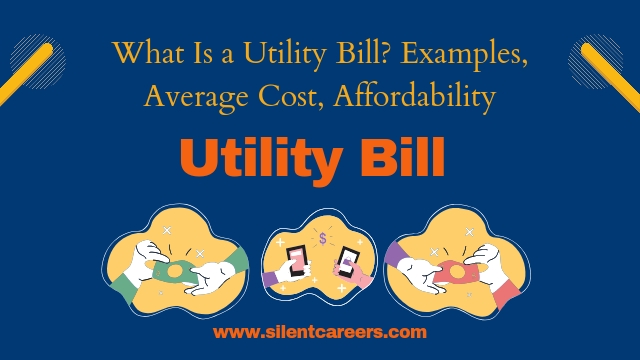
Free rent refers to a period during which tenants do not have to pay rent, often offered as an incentive by landlords to attract tenants. It’s commonly used in commercial and residential leases to make a property more appealing.

12 Legit Ways To Live Free Rent / How to be free of paying rent?
Living rent-free can significantly reduce your expenses and help you save money. Here are 12 legitimate ways to achieve this:
1. House Sitting
- Take care of someone’s home while they are away in exchange for free accommodation. Websites like TrustedHousesitters connect homeowners with house sitters.
2. Work as an Au Pair
- Live with a host family and take care of their children in exchange for room and board. This often includes additional benefits like meals and sometimes a small stipend.
3. Property Caretaker
- Maintain and manage a property for an absentee owner. Responsibilities may include general upkeep, security, and minor repairs.
4. Live-in Nanny or Caregiver
- Provide childcare, eldercare, or support for people with disabilities in exchange for free accommodation and sometimes a salary.
5. Home Exchange
- Swap homes with someone else, either within the country or internationally, for a specified period. Websites like HomeExchange facilitate these arrangements.
6. Work Exchange Programs
- Participate in programs like WWOOF (World Wide Opportunities on Organic Farms) or Workaway, where you work a few hours a day in exchange for free lodging and sometimes meals.
7. Living in a Tiny House on Someone’s Land
- Negotiate with a landowner to park your tiny house on their property in exchange for maintenance, security, or a nominal fee.
8. House Hacking
- Buy a multi-unit property, live in one unit, and rent out the others. The rental income from tenants can cover your mortgage payments, effectively allowing you to live rent-free.
9. Live-in Property Manager
- Manage an apartment building or housing complex in exchange for free or reduced rent. Duties may include tenant management, maintenance coordination, and rent collection.
10. Monastery or Religious Commune
- Some religious communities offer free accommodation in exchange for participation in communal activities and adherence to community rules and practices.
11. University Resident Advisor (RA)
- Work as a resident advisor in a college dormitory. This role often includes free room and board along with a stipend for overseeing student residents and organizing activities.
12. Live with Family
- Temporarily move in with family members while contributing in other ways, such as helping with household chores, caregiving, or paying for utilities and groceries.
By exploring these options, you can find a rent-free living arrangement that suits your lifestyle and needs while offering valuable services or work in return.
Work and travel opportunities
Exploring work and travel opportunities can be a fantastic way to see the world while earning an income. Here are some popular and legitimate options:
1. Teach English Abroad
- Many countries, especially in Asia and the Middle East, offer programs to teach English. Positions often come with benefits like free housing and airfare. Popular programs include JET in Japan and EPIK in South Korea.
2. Au Pair
- Work as an au pair, living with a host family and taking care of their children. This role provides room, board, and a stipend. It’s a great way to immerse yourself in a new culture.
3. Cruise Ship Jobs
- Work on a cruise ship in various roles, from hospitality to entertainment. You’ll travel to different destinations while earning a salary and having your living expenses covered.
4. Work Exchange Programs
- Participate in programs like WWOOF (World Wide Opportunities on Organic Farms) or Workaway, where you work a few hours a day in exchange for free lodging and meals.
5. Remote Work and Digital Nomadism
- With the rise of remote work, many jobs can now be done from anywhere with an internet connection. Fields like web development, graphic design, writing, and virtual assistance are particularly well-suited for digital nomads.
6. Seasonal Work
- Find seasonal jobs in tourism, agriculture, or hospitality. Ski resorts, summer camps, and harvest seasons offer temporary employment that often includes accommodation.
7. Volunteering with NGOs
- Volunteer for non-governmental organizations (NGOs) that provide room and board. Organizations like the Peace Corps or Habitat for Humanity offer structured programs with living stipends.
8. Freelancing
- Offer your skills on platforms like Upwork, Fiverr, or Freelancer. Freelancing allows you to work from anywhere and often gives you the flexibility to travel.
9. Travel Blogging or Vlogging
- Start a travel blog or YouTube channel, documenting your experiences. It takes time to build an audience, but successful bloggers and vloggers can earn money through ads, sponsorships, and affiliate marketing.
10. House Sitting
- Take care of someone’s home while they are away in exchange for free accommodation. Websites like TrustedHousesitters can connect you with homeowners around the world.
11. Scuba Diving Instructor
- If you’re certified, work as a scuba diving instructor in popular dive locations. This job often comes with the perk of living in beautiful, tropical destinations.
12. Tour Guide
- Work as a tour guide in popular tourist destinations. This can be a seasonal or permanent job, depending on the location and the type of tours offered.
13. Hospitality Jobs
- Work in hotels, hostels, or restaurants in tourist areas. Positions may include front desk, housekeeping, or food service, often with the possibility of live-in arrangements.
14. International Internships
- Participate in internship programs that provide stipends or cover living expenses. These internships can offer valuable work experience and the chance to live abroad.
15. Sailing and Yacht Crewing
- Work as a crew member on private yachts or charter boats. Positions range from deckhands to chefs, and you’ll travel to various destinations while working.
By leveraging these opportunities, you can travel and explore new cultures while earning an income or having your living expenses covered.
Housing opportunities that require no traveling
If you’re looking for housing opportunities that allow you to stay in one place and do not require traveling, there are several options to consider. These opportunities can help you save on rent and other living expenses by providing housing in exchange for services or work. Here are some possibilities:
1. Live-in Property Manager
- Manage an apartment building or housing complex in exchange for free or reduced rent. Responsibilities typically include tenant management, maintenance coordination, and rent collection.
2. Live-in Nanny or Caregiver
- Provide childcare, eldercare, or support for individuals with disabilities. In return, you receive free room and board, and sometimes a salary.
3. House Sitting
- Look after someone’s home while they are away. This can include tasks like pet care, gardening, and general home maintenance. Websites like TrustedHousesitters offer local house-sitting opportunities.
4. Resident Advisor (RA)
- If you’re a student, work as a resident advisor in a college or university dormitory. This role often includes free room and board along with a stipend.
5. Property Caretaker
- Maintain and oversee the upkeep of a property for an absentee owner. Duties might include gardening, minor repairs, and general property management.
6. Monastery or Religious Commune
- Some religious communities offer free accommodation in exchange for participation in communal activities and adherence to community rules and practices.
7. Rent-Free Arrangements with Family or Friends
- Live with family members or friends rent-free while contributing in other ways, such as helping with household chores, caregiving, or covering utility bills and groceries.
8. Live-in Domestic Worker
- Work as a live-in housekeeper, cook, or general domestic worker. This arrangement typically provides free accommodation and sometimes additional benefits like meals and a salary.
9. Work Exchange Programs
- Participate in local work exchange programs where you provide a few hours of work per day in exchange for free lodging. These can include opportunities in organic farming, homesteads, or local businesses.
10. Caretaking for Vacation Homes
- Caretake for vacation homes or second homes that are not regularly occupied. Responsibilities might include regular check-ins, maintenance, and security.
11. Homesharing Programs
- Participate in homesharing programs that match homeowners with people looking for affordable housing. In exchange for reduced or free rent, you might provide companionship, household help, or other agreed-upon services.
12. Living in a Tiny House on Someone’s Land
- Negotiate with a landowner to park your tiny house on their property. In exchange, you might offer services like property maintenance, gardening, or security.
These housing opportunities provide alternatives to paying rent by offering services or work in exchange for free or reduced accommodation. Exploring these options can help you find a stable living situation without the need for constant travel.
Read more: What is a Semi Detached House: Everything To Know Before Buying
Money-saving habits to consider
Adopting money-saving habits can significantly improve your financial health and help you achieve your financial goals. Here are some effective strategies to consider:
1. Create a Budget
- Track your income and expenses to understand where your money is going. Use budgeting tools or apps to help manage and monitor your spending.
2. Build an Emergency Fund
- Save a portion of your income regularly to create an emergency fund that can cover unexpected expenses, reducing the need to rely on credit cards or loans.
3. Automate Savings
- Set up automatic transfers to your savings account to ensure you save a portion of your income regularly without thinking about it.
4. Reduce Utility Bills
- Save on energy costs by turning off lights, unplugging electronics when not in use, using energy-efficient appliances, and adjusting your thermostat.
5. Cut Unnecessary Subscriptions
- Review your subscriptions for streaming services, magazines, apps, and other recurring expenses. Cancel those you don’t use or need.
6. Cook at Home
- Save money by preparing meals at home instead of dining out. Plan your meals, make a grocery list, and stick to it to avoid impulse purchases.
7. Use Cashback and Rewards Programs
- Take advantage of cashback offers and rewards programs on credit cards and shopping apps. This can provide savings or bonuses on purchases you already make.
8. Shop Smart
- Look for sales, use coupons, and compare prices before making purchases. Buy in bulk for items you use frequently to save in the long run.
9. Limit Impulse Buying
- Avoid spontaneous purchases by waiting 24 hours before buying non-essential items. This gives you time to consider if you really need or want the item.
10. Buy Generic Brands
- Opt for generic or store brands instead of name brands for groceries, medications, and household products. They often offer similar quality at a lower price.
11. Reduce Debt
- Pay down high-interest debt as quickly as possible to reduce interest payments. Consider consolidating debts to lower your interest rates and simplify payments.
12. Use Public Transportation
- Save on transportation costs by using public transit, carpooling, biking, or walking when possible. This can reduce expenses on gas, parking, and vehicle maintenance.
13. Limit Entertainment Expenses
- Find low-cost or free entertainment options like visiting parks, museums on free admission days, attending community events, or using your library for books and movies.
14. DIY When Possible
- Do-it-yourself projects can save money on home repairs, gifts, and personal care. Learn new skills through online tutorials and guides.
15. Review Insurance Policies
- Regularly review your insurance policies (auto, home, health) to ensure you’re getting the best rates and coverage. Shop around and compare quotes.
16. Negotiate Bills
- Negotiate with service providers for better rates on bills such as cable, internet, phone, and even rent. Sometimes, simply asking can lead to discounts or better deals.
17. Avoid Fees
- Use in-network ATMs to avoid fees, and ensure you meet the minimum balance requirements to avoid bank fees. Review and understand the terms of your accounts and cards.
18. Plan Major Purchases
- Save up for major purchases instead of financing them. This can help you avoid interest payments and keep your debt under control.
19. Use a Financial Planner
- If you’re unsure about managing your finances, consider consulting with a financial planner. They can provide personalized advice to help you save and invest wisely.
20. Set Financial Goals
- Establish short-term and long-term financial goals. Having clear objectives can motivate you to save and make more informed financial decisions.
By incorporating these money-saving habits into your daily life, you can reduce expenses, increase your savings, and improve your overall financial stability. The key is to be consistent and mindful of your spending habits.
Is it really free rent?
When considering “free rent” arrangements, it’s important to understand that while you may not be paying monetary rent, there are often other forms of exchange or commitments involved. Here are some examples of common “free rent” scenarios and the associated responsibilities:
1. House Sitting
- Responsibilities: Caring for the home, possibly including pet care, plant watering, and maintaining the property while the owner is away.
- Is it really free?: Yes, in terms of money, but it requires your time and effort to fulfill the agreed-upon duties.
2. Live-in Nanny or Caregiver
- Responsibilities: Providing childcare or eldercare, sometimes household chores and meal preparation.
- Is it really free?: Yes, in terms of rent, but it involves significant time and effort, often full-time work.
3. Property Caretaker
- Responsibilities: Maintaining the property, performing repairs, managing security, and possibly handling administrative tasks.
- Is it really free?: Yes, monetarily, but you must invest considerable time and skill in property management.
4. Resident Advisor (RA)
- Responsibilities: Overseeing student residents, organizing activities, and handling emergencies in dormitories.
- Is it really free?: Yes, financially, but it requires you to be on-call and involved in student life.
5. Work Exchange Programs
- Responsibilities: Working a few hours a day in roles like organic farming, hospitality, or maintenance in exchange for room and board.
- Is it really free?: Yes, monetarily, but it requires labor and commitment to work hours.
6. Live-in Domestic Worker
- Responsibilities: Household cleaning, cooking, laundry, and other domestic tasks.
- Is it really free?: Yes, in terms of rent, but it involves significant daily work.
7. Homesharing Programs
- Responsibilities: Providing companionship, helping with household chores, or assisting with personal care for the homeowner.
- Is it really free?: Yes, financially, but it involves a commitment to providing services and support.
8. Live-in Property Manager
- Responsibilities: Managing rental units, handling tenant issues, coordinating repairs, and maintaining property standards.
- Is it really free?: Yes, financially, but it requires considerable time and management skills.
“Free rent” often involves an exchange of services, time, and effort rather than a direct financial payment. While you may not be paying rent out of pocket, you are still investing resources in fulfilling the agreed-upon responsibilities. It’s crucial to carefully consider the terms of any “free rent” arrangement to ensure it aligns with your lifestyle, skills, and availability.
When do you get the free rent?
The timing and conditions for receiving free rent vary depending on the specific arrangement. Here are some common scenarios and when you typically start benefiting from the free rent:
1. House Sitting
- When You Get Free Rent: Immediately upon starting the house-sitting assignment. You live in the home rent-free for the duration of the homeowner’s absence, as soon as you take on the responsibilities.
2. Live-in Nanny or Caregiver
- When You Get Free Rent: From the start of your employment. You move into the family’s home and begin your duties, receiving free accommodation as part of your compensation package.
3. Property Caretaker
- When You Get Free Rent: As soon as you assume the caretaker role and start maintaining the property. You live rent-free while performing your duties, which may begin immediately after being hired.
4. Resident Advisor (RA)
- When You Get Free Rent: At the beginning of the academic term or your official start date as an RA. You receive free housing in the dormitory in exchange for your responsibilities.
5. Work Exchange Programs
- When You Get Free Rent: Upon arrival and beginning your work exchange duties. Programs like WWOOF or Workaway provide accommodation from the start of your participation.
6. Live-in Domestic Worker
- When You Get Free Rent: From the moment you move into the employer’s home and start your job duties, you receive free accommodation as part of your employment agreement.
7. Homesharing Programs
- When You Get Free Rent: Once you move in and begin providing the agreed-upon services, such as companionship or household help. The free rent starts as soon as you start fulfilling your part of the arrangement.
8. Live-in Property Manager
- When You Get Free Rent: When you take on the role and start managing the property. Free rent is typically part of your compensation and begins immediately upon assuming your responsibilities.
9. Volunteer Programs
- When You Get Free Rent: Upon arrival at the volunteer site and starting your duties. Programs like Peace Corps or local volunteer opportunities offer accommodation from the beginning of your service.
10. Monastery or Religious Commune
- When You Get Free Rent: After being accepted into the community and starting to participate in communal activities. Free accommodation is provided as part of your integration into the community.
In most cases, you start receiving free rent immediately or very soon after you begin fulfilling your responsibilities. It’s important to clearly understand the terms and conditions of the arrangement before committing, including any initial steps or probation periods that may affect when you start receiving the housing benefit.
How much free rent can I have?
The amount of free rent you can receive depends on the specific arrangement and its terms. Here are some factors and examples that illustrate how much free rent you might receive in various scenarios:
1. House Sitting
- Amount of Free Rent: Full rent for the duration of the homeowner’s absence, which can range from a few days to several months. The value depends on the location and type of property.
2. Live-in Nanny or Caregiver
- Amount of Free Rent: Full rent for as long as you are employed by the family. This includes your living space, often a private room or a separate living area within the home.
3. Property Caretaker
- Amount of Free Rent: Full rent while you are responsible for the property. The housing provided can vary from small apartments to larger houses, depending on the property you manage.
4. Resident Advisor (RA)
- Amount of Free Rent: Full rent for the academic year or term. You receive a dorm room or apartment, often along with other benefits like meal plans.
5. Work Exchange Programs
- Amount of Free Rent: Full rent during the period of your work exchange. Accommodations can range from shared rooms to private quarters, depending on the host and program.
6. Live-in Domestic Worker
- Amount of Free Rent: Full rent for the duration of your employment. You get housing within your employer’s home, which may include a private room and access to common areas.
7. Homesharing Programs
- Amount of Free Rent: Full rent in exchange for services. You live in a homeowner’s residence, typically in a private room, with rent covered by the services you provide.
8. Live-in Property Manager
- Amount of Free Rent: Full rent for as long as you manage the property. You may live in a unit within the property you manage or in separate housing provided by the property owner.
9. Volunteer Programs
- Amount of Free Rent: Full rent for the duration of your volunteer service. Accommodations can vary from shared housing to private rooms, depending on the program and location.
10. Monastery or Religious Commune
- Amount of Free Rent: Full rent as part of the community. You receive housing within the monastery or commune, which might be a shared or private space, depending on the community’s structure.
Examples of Housing Value
- Urban Apartment: In major cities, free rent for a studio or one-bedroom apartment could save you anywhere from $1,000 to $3,000 per month.
- Suburban Home: In suburban areas, free rent in a family home might save you $800 to $2,500 per month, depending on the location and size of the home.
- Rural Property: In rural areas, free rent on a farm or larger property could save you $500 to $1,500 per month.
The amount of free rent you can have is typically the full cost of the housing provided under the arrangement. This value varies widely based on the location, type of housing, and the terms of the specific agreement. It’s important to carefully review the details of any free rent arrangement to understand the full value and responsibilities involved.
Is paying rent really necessary, or is it possible to live rent-free?
Paying rent is a common and often necessary expense for many people, but there are legitimate ways to live rent-free by exchanging services, participating in specific programs, or making certain lifestyle choices. While living rent-free is possible, it often requires trade-offs in terms of time, effort, or lifestyle adjustments. Here are some scenarios and options for living rent-free:
1. House Sitting
- Description: Take care of someone’s home while they are away. This may include tasks like pet care, plant watering, and general maintenance.
- Trade-offs: Requires trustworthiness and responsibility. Typically, these are temporary arrangements.
2. Live-in Nanny or Caregiver
- Description: Provide childcare, eldercare, or support for people with disabilities in exchange for free room and board.
- Trade-offs: Demands significant time and effort, often full-time responsibilities.
3. Property Caretaker
- Description: Maintain and manage a property for an absentee owner. Duties might include general upkeep, security, and minor repairs.
- Trade-offs: Requires skills in property management and maintenance.
4. Resident Advisor (RA)
- Description: Work as an RA in a college dormitory, overseeing student residents and organizing activities.
- Trade-offs: Involves being on-call and participating actively in student life.
5. Work Exchange Programs
- Description: Participate in programs like WWOOF or Workaway, where you work a few hours a day in exchange for free lodging and sometimes meals.
- Trade-offs: Requires physical labor and commitment to work hours.
6. Live-in Domestic Worker
- Description: Work as a live-in housekeeper, cook, or general domestic worker.
- Trade-offs: Involves daily work and possibly long hours.
7. Homesharing Programs
- Description: Provide companionship, household help, or other services in exchange for free or reduced rent.
- Trade-offs: Requires a commitment to providing agreed-upon services.
8. Living in a Tiny House on Someone’s Land
- Description: Park your tiny house on someone’s property in exchange for services like property maintenance or gardening.
- Trade-offs: Requires negotiating with a landowner and possibly performing regular duties.
9. Volunteer Programs
- Description: Volunteer with organizations that provide free housing, such as the Peace Corps or Habitat for Humanity.
- Trade-offs: Involves significant time commitment and often living in specific locations or conditions.
10. Monastery or Religious Commune
- Description: Live in a religious community that provides housing in exchange for participation in communal activities.
- Trade-offs: Requires adherence to community rules and practices.
11. Family or Friends
- Description: Live with family members or friends without paying rent, possibly in exchange for helping with chores, caregiving, or contributing to utilities and groceries.
- Trade-offs: May involve less privacy and a need to balance relationships and contributions.
Summary
While it is possible to live rent-free, these arrangements usually require a commitment of time, skills, or services. Each option comes with its own set of responsibilities and lifestyle adjustments. Careful consideration of the trade-offs and your ability to meet the required commitments is essential when exploring rent-free living options.








